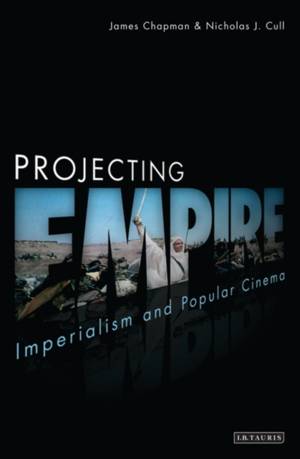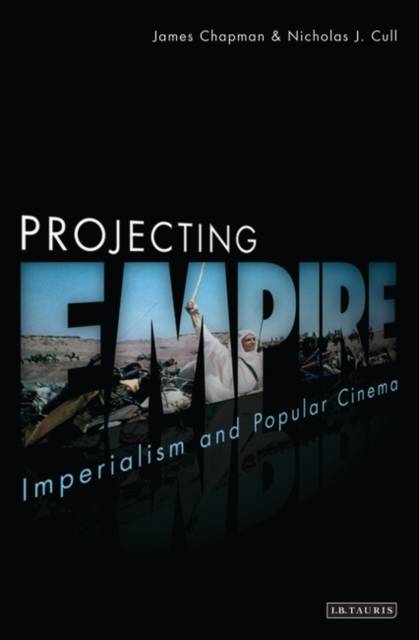
Bedankt voor het vertrouwen het afgelopen jaar! Om jou te bedanken bieden we GRATIS verzending (in België) aan op alles gedurende de hele maand januari.
- Afhalen na 1 uur in een winkel met voorraad
- In januari gratis thuislevering in België
- Ruim aanbod met 7 miljoen producten
Bedankt voor het vertrouwen het afgelopen jaar! Om jou te bedanken bieden we GRATIS verzending (in België) aan op alles gedurende de hele maand januari.
- Afhalen na 1 uur in een winkel met voorraad
- In januari gratis thuislevering in België
- Ruim aanbod met 7 miljoen producten
Zoeken
€ 55,95
+ 111 punten
Omschrijving
Popular cinema is saturated with images and narratives of empire. With "Projecting Empire", Chapman and Cull have written the first major study of imperialism and cinema for over thirty years. This welcome text maps the history of empire cinema in both Hollywood and Britain through a serious of case studies of popular films including biopics, adventures, literary adaptations, melodramas, comedies and documentaries, from the 1930s and "The Four Feathers" to the present, with "Indiana Jones" and "Three Kings". The authors consider industry-wide trends and place the films in their wider cultural and historical contexts. Using primary sources that include private papers, they look at the presence of particular auteurs in the cinema of Imperialism, including Korda, Lean, Huston and Attenborough, as well as the actors who brought the stories to life, such as Elizabeth Taylor and George Clooney. At a time when imperialism has a new significance in the world, this book will fulfil the needs of students and interested filmgoers alike.
Specificaties
Betrokkenen
- Auteur(s):
- Uitgeverij:
Inhoud
- Aantal bladzijden:
- 256
- Taal:
- Engels
- Reeks:
Eigenschappen
- Productcode (EAN):
- 9781845119409
- Verschijningsdatum:
- 15/07/2009
- Uitvoering:
- Paperback
- Formaat:
- Trade paperback (VS)
- Afmetingen:
- 155 mm x 231 mm
- Gewicht:
- 385 g

Alleen bij Standaard Boekhandel
+ 111 punten op je klantenkaart van Standaard Boekhandel
Beoordelingen
We publiceren alleen reviews die voldoen aan de voorwaarden voor reviews. Bekijk onze voorwaarden voor reviews.









